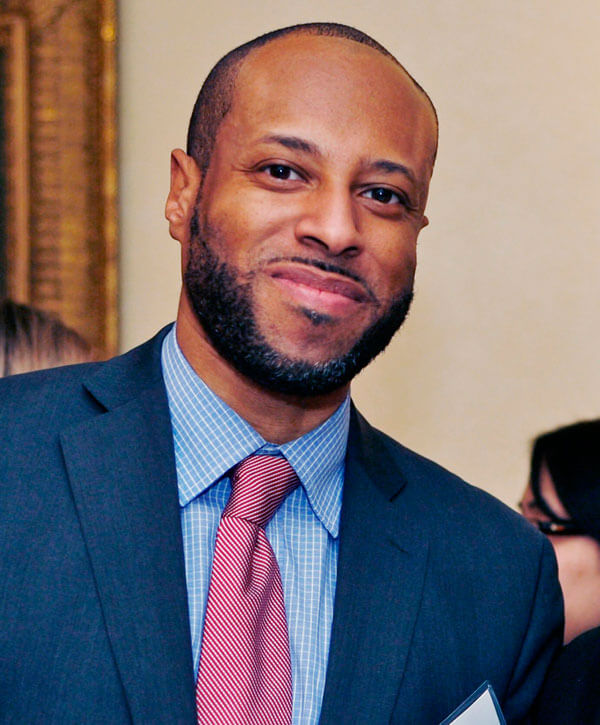The name Carey Gabay will not soon be forgotten by qualified students seeking aid in order to gain entry into a State University of New York.
Gov. Andrew Cuomo ensured that one individual will be awarded a fellowship and five students will be granted scholarships in his name in order to continue the legacy left by the attorney and public servant.
The legislator named the Carey Gabay Scholarship Program, a provisional for financial assistance to five incoming SUNY State-operated campus students who “exemplify Carey’s commitment to social justice, leadership, and mentoring, as well as his personal story of succeeding academically despite an economically disadvantaged background.”
“Carey Gabay was an exceptional individual who could have done anything, but chose to enter into public service and give back,” Gov. Cuomo said.
“His kindness, loyalty and grit made him beloved by family, friends and co-workers and his dedication to making New York a better, fairer and safer place made him an inspiration to all. The fellowship and scholarship programs bearing his name will serve as a constant reminder of Carey’s professional accomplishments and exceptional character, and will ensure his legacy is honored for years to come.”
Forty-three-year-old Gabay worked tirelessly in public service, first as an assistant counsel to the governor and more recently as first deputy counsel for the Empire State Development Corporation.
He was tragically killed as an innocent victim of gun violence last September when alleged gang members fired into a crowd of jourvert revelers on the eve of Labor Day.
Carey grew up living in public housing and attended public school in the Bronx. After a successful high school career, he went on to graduate from Harvard University and Harvard Law School.
While at Harvard University, he ran to become the president of his undergraduate student body.
According to Gov. Cuomo, “the Carey Gabay Scholarship Program will annually award full-ride scholarships to five students beginning in the 2016-17 school year.”
The scholarships will cover all costs of attendance, including tuition, room and board, college fees, books and supplies, and transportation and personal expenses.
Qualified recipients must personify Carey’s example of dedication and commitment to public service and giving back.
A priority is that potential candidates achieved academic excellence despite an economically disadvantaged background.
The winning Fellow will serve for two years in the Governor’s Counsel’s office, where Gabay began his career in this administration, and will work on furthering the governor’s violence prevention initiatives as well as issues of economic equality and development that Gabay championed throughout his career.
The individual will be assigned a mentor in Counsel’s office and the first fellow will lead a major research project on violence prevention in memory of Gabay.
Reportedly, opportunities for the fellow to earn an MPA concurrently with state service will be explored.
Fellowship attorney applications are now being accepted and require a personal statement, three references, a writing sample and impressive academic and professional credentials. In addition, another requirement is that the potential Fellow will update the Gabay family periodically as to his or her work and experience.
In order to be eligible to apply for the Carey Gabay Memorial Scholarship, a student must meet the following conditions:
•Student must be a current New York State resident;
•Student must be an incoming freshman at a State University of New York State operated campus who will be matriculated and enrolled full time;
•Student must demonstrate significant financial need as determined by the completion of the Free Application for Federal Student Aid (FAFSA);
•Student’s high school record must demonstrate high academic achievement, including a
•minimum cumulative grade point average of 90;
•Student must submit an essay regarding challenges overcome during the course of the student’s academic career, as well as his or her personal commitment to mentoring, leadership, and social justice; and
•Student must submit two letters of recommendation from teachers or community members.
In order to continue receiving the complete four-year award:
•Student must maintain full-time enrollment for any semester in which they receive an award;
•Student must be in good academic standing with a minimum cumulative grade point average of 3.0 at the end of their freshmen year and thereafter;
•Student must adhere to the Student Code of Conduct;
•Student must demonstrate commitment to social justice and giving back to the community by volunteering a minimum of 15 hours per semester. Student will be required to submit a statement de-scribing their volunteer activities each year, signed by a supervisor of the agency or organization they served; and
•Student must continue to demonstrate financial need as determined by the completion of a FAFSA.
























